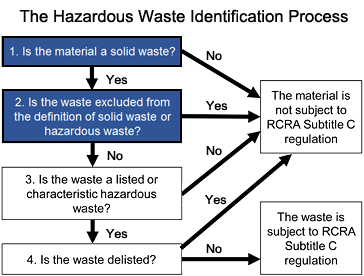The Of Reclaim Waste
The Of Reclaim Waste
Blog Article
The 10-Minute Rule for Reclaim Waste
Table of Contents4 Easy Facts About Reclaim Waste ExplainedThe smart Trick of Reclaim Waste That Nobody is Talking AboutThe Definitive Guide to Reclaim WasteNot known Facts About Reclaim WasteFacts About Reclaim Waste RevealedReclaim Waste Can Be Fun For Everyone
If your business generates any sort of waste, you're currently aware of the day-to-day obstacles of handling it - liquid waste removal. Did you understand that there are best methods for waste monitoring? In this post, we'll discover some of the ideal methods to maintain your service's basic and fluid waste in controlSo continue reading and find out just how to handle your organization waste in one of the most reliable means feasible! Recycling is one of the best ways to lower the quantity of waste your organization creates. By establishing a recycling program, you'll not only conserve cash however assistance keep valuable products out of land fills.
Composting can aid minimize the amount of waste you send to the land fill, while additionally creating a nutrient-rich soil amendment that you can make use of in your yards or yards. Instead of getting rid of liquid non-hazardous waste, facilities can benefit from the chance to create plant food. After removing the water from the waste, there will be natural issue having crucial nutrients such as nitrogen, potassium and sodium.
This can be done through straightforward steps such as reducing the quantity of packaging made use of in items or switching to multiple-use containers as opposed to non reusable ones. Incineration is usually utilized as a method of contaminated materials disposal, yet it ought to be utilized cautiously. The procedure involves specialized heating systems that incinerate acids, chemicals, oils and various other waste matter; the warmth leaves only water behind.
The Facts About Reclaim Waste Revealed
Furthermore, Burners are pricey to build, preserve and operatemaking them a bothersome solution for numerous centers. Along with recycling and composting, there are other methods for decreasing the quantity of waste your company creates. Practices such as and like paper, cardboard boxes, and plastic containers can considerably decrease the quantity of waste your company creates.
The staying option is to throw out the fluid waste as-is, most of the time with support from a professional disposal group. The center collects its fluid squander right into ideal drums and afterwards sends it off; the waste monitoring firm transfers it away for suitable elimination based on national and state regulations.
Correct disposal is key to reliable waste monitoring. Ensure every little thing you dispose of is properly arranged and disposed of according to local laws. If you don't have the time or sources to handle your company's waste, hiring a specialist waste monitoring business can be a fantastic means to make sure that it's done.
9 Easy Facts About Reclaim Waste Described
You can ensure that your service is doing its component to protect the atmosphere and preserve sources. With our assistance, any kind of company can end up being a lot more sustainable and minimize its environmental effect. Get in touch with us today for more information about how we can help you handle your organization's waste in one of the most effective and effective way possible.

Do you keep in mind the definition of hygiene utilized in Study Session 1? Hygiene was specified as the prevention of contact in between people and waste.
The Only Guide for Reclaim Waste
Cleanliness approaches intend to decrease the spread of illness by ensuring that wastewater, excreta and other wastes are appropriately treated. This session will assist you to reply to the hygiene needs of families and organizations. When you have actually researched this session, you need to have the ability to:19.1 Specify and appropriately utilize the keywords printed in bold.
(https://dzone.com/users/5285601/reclaimwaste1.html)(SAQ 19.1)19.3 Define some different methods of liquid waste disposal. (SAQ 19.2) In Research Study Session 18 you learned that fluid waste consists of human waste, sullage, industrial waste and runoff (also referred as tornado water or flood water). Sewage consists of human wastes (i.e.
Sullage is the wastewater that arises from develops activities such as washing in cleaning and shower rooms, including water from food preparation and prep work; it does not contain human excreta (liquid waste removal).
The Basic Principles Of Reclaim Waste
Industrial waste might be toxic and therefore hazardous in nature, or it might contain non-hazardous compounds. Unlike the other kinds of fluid waste, some commercial wastes may need unique treatment before discharge from the sector. Runoff is just flooding water that emerges from rain or the release of collected water from a fish pond or dam.
For that reason, it is possibly harmful to the health and wellness of the area. Fluid waste is also produced in medical care centers but this will be handled thoroughly in Research Session 23. Monitoring of fluid waste focuses on finding a way to throw away the waste in a means that is secure for humans and the environment.

The method used ought to be easy and economical in building and operation. The method ought to last for at the very least 5 years to be cost-effective. In Study Session 18 More hints you were introduced to a few of the cleanliness technologies that are used for human waste management. You might remember that WCs and pour-flush centers were classed as wet or water carriage systems, likewise called drop-flush-and-discharge systems.
Report this page